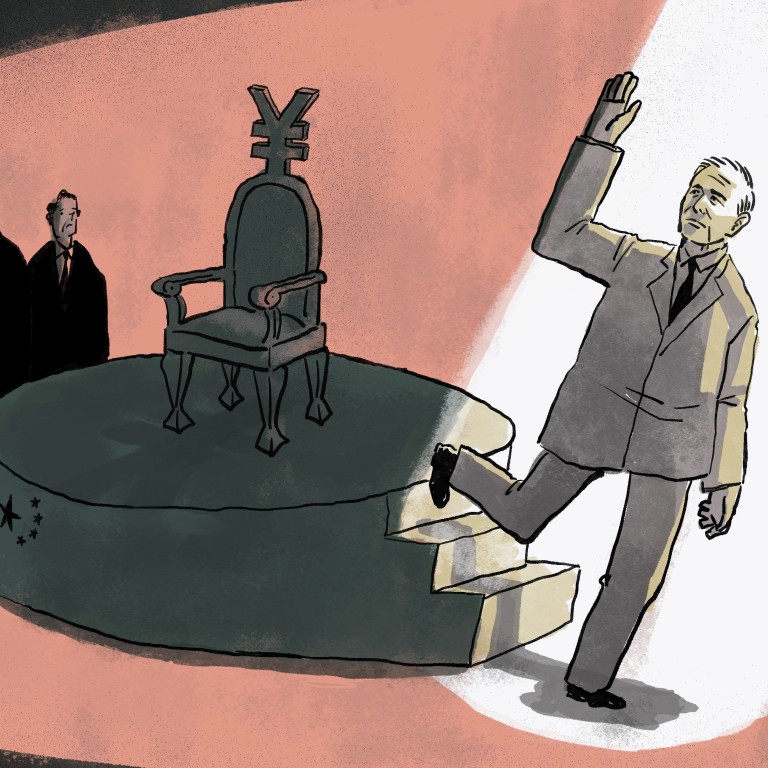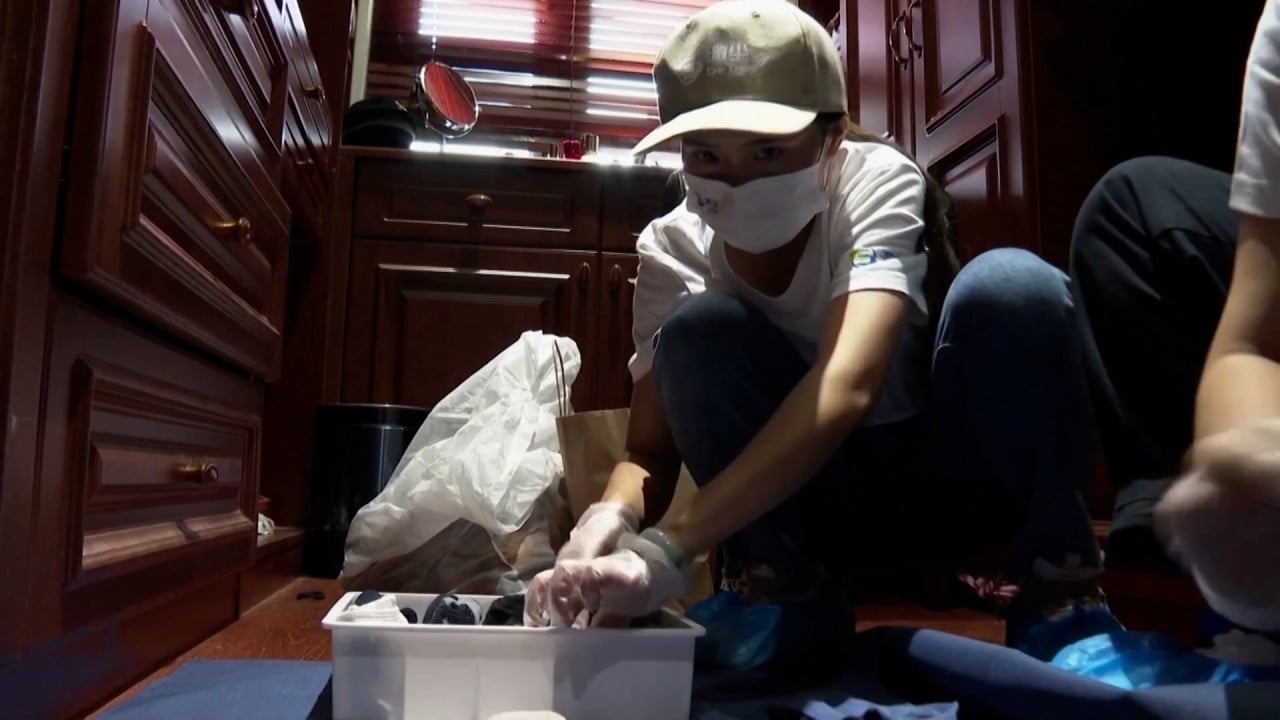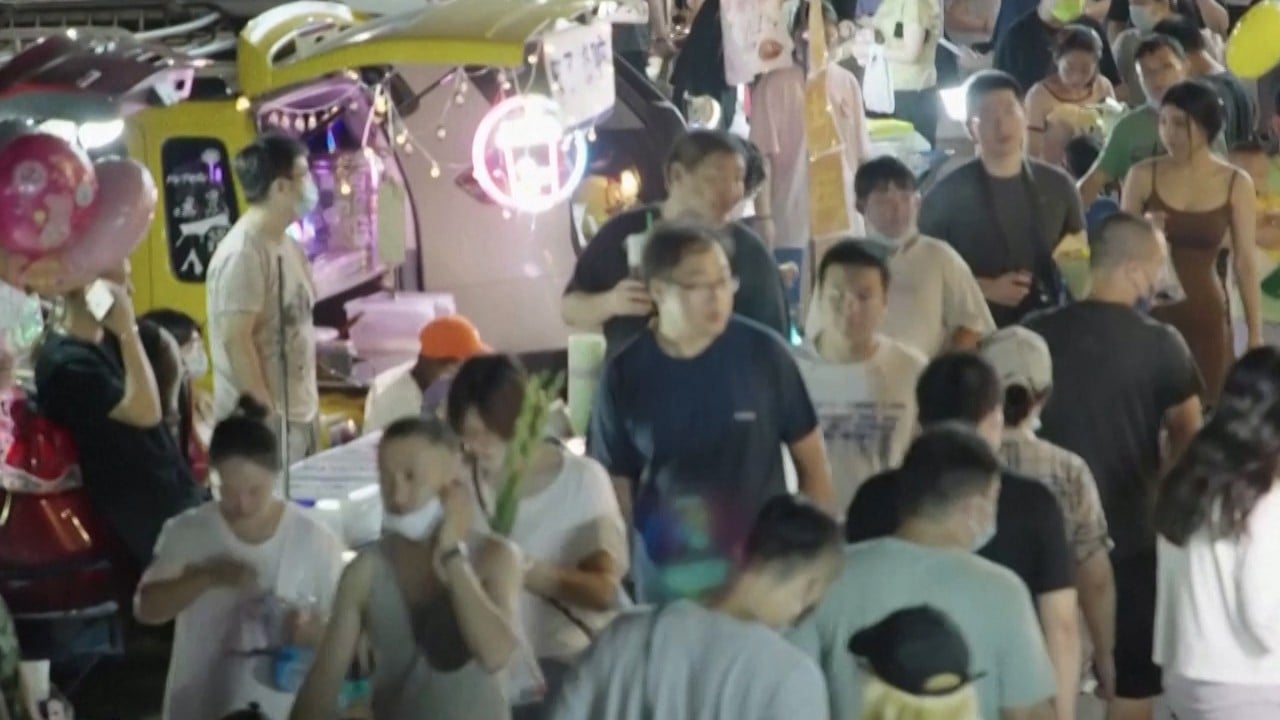
‘Economic tsar’ Liu He has President Xi’s full trust, but who can fill in when Liu retires?
- Short- and long-term economic challenges are testing China, putting added pressure on its top economic adviser
- Vice-Premier Liu He is Xi Jinping’s right-hand man for economic affairs, but some analysts say any potential replacement might not have as much personal authority
Analysts expect the job to go to a person with deep knowledge of the Chinese economy and finances, with the top leader’s endorsement to take painful but necessary actions, and with extensive working experience to ensure thorough local enforcement.
Externally, it faces technological containment and economic rivalry from the United States as it challenges American dominance in the next decade.
While Premier Li Keqiang is in charge of China’s overall economic development, Liu, who has Xi’s full confidence, has been given many important portfolios and tasks, making him one of China’s most influential economic and financial officials ever.
Although Liu remains a known quantity in terms of policy stability and continuity, he is now 70 years old and likely to be subject to unwritten retirement norms that see those aged 68 or above at the time of a party congress put out to pasture.
China’s economy is traditionally run by the premier and vice-premiers, but the actual distribution of labour among them is often decided by various working groups under the State Council, and Liu heads several of the most important ones.
The party congress will decide the line-up of the next party leadership under Xi. The selections of premier and vice-premiers will only be confirmed at the National People’s Congress in March.
An implicit prerequisite for vice-premiership is to qualify as a member of the Politburo and the premier a member of the Politburo Standing Committee. While there are no written restrictions, retiring at 68 years old for Politburo members is customarily observed. While Xi could choose not to observe the unwritten rules, he has not done so at such a level for other Politburo members.
At 70, Liu has already surpassed the tacit age limit. It is not clear if Xi may retain his service through some other arrangements, such as the one extended to his trusted ally and former vice-premier Wang Qishan when he retired from the Politburo in 2017.
Liu also oversees the reform of China’s state-owned enterprises, financial sector, industrial policy, technology and innovation, and has also been leading the economic talks with the US and EU.
“The next person who occupies this position, whomever they might be, is not going to have the same amount of personal authority as Liu He,” said Andrew Batson, director of China research at Gavekal Dragonomics, a Hong Kong-based research firm, pointing to Xi’s tightening grip on the levers of power.
Xi’s backing has contributed to the rapid progress of China’s supply-side structural reform – slowing the pace of economic expansion to tackle stubborn industrial overcapacity and economic imbalances. Policymakers have pushed hard to tackle local debt burdens and shadow banking activities, and to restructure vulnerable small banks exposed to the property and economic slowdowns, while refraining from new stimulus and trying to improve productivity through market-oriented flows of production factors and technological innovation.
Christopher Johnson, a senior fellow with the Asia Society Policy Institute, said at a webinar in August that he believed Xi was looking for “somebody with operational experience”.
“That’s going to be front and centre, because restoring growth will be very, very important after the party congress,” Johnson said.
He Lifeng, the 67-year-old chairman of the National Development and Reform Commission, has been tipped by many analysts as one of the front runners.
He worked with Xi in Xiamen, Fujian province, briefly in the late 1980s and has accompanied Xi on most of the president’s field visits in recent years, hinting at a close relationship. With a doctoral degree in fiscal science, He has also filled major administrative roles in Fujian and Tianjin, and he is listed among the finance sector delegates for this year’s congress.
He, who also heads China’s Xi Jinping Economic Thought Research Centre, discussed issues such as technological self-sufficiency and innovation-driven development – areas overseen by Liu – in an article in the state-run Guangming Daily last week.
But whether He can be as influential as Liu also hinges on who will be Xi’s next premier, as well as on the division of labour among the new leadership.
Other contenders could include 66-year-old Guo Shuqing, who is party secretary of the People’s Bank of China, chairman of the China Banking and Insurance Regulatory Commission, former deputy governor of Guizhou and former governor of Shandong, and 59-year-old Han Wenxiu, a top assistant to Liu in the Central Financial and Economic Affairs Commission.
The role could also be shared by a team, with the premier having historically taken on the main responsibility for economic work since the late 1970s – often assisted by several vice-premiers or state councillors assigned to oversee foreign trade, finance and agriculture.
The concept of an “economic tsar” first appeared in the 1990s. That’s when then-vice-premier Zhu Rongji had the final say on tackling a property bubble in Hainan province, reining in consumer inflation, foreign exchange, fiscal reform and the restructuring of state-owned industrial enterprises and banks.
Zhu, who served as mayor of Shanghai for four years from the late 1980s and even took on the concurrent position of central bank governor from 1993-95 while serving as vice-premier, was elevated to the premiership at the age of 69 in 1998.
Speaking to the criteria for a good Communist cadre in 2013, Xi set out four principles: political reliability, professional competence, a high degree of integrity and the trust of the people.
Xi has also shown his appreciation for cadres with extensive field experience, mirroring his own path from a village head in Shaanxi province in the 1970s to the head of Zhengding county in Hebei province, to Xiamen mayor, to governor of Zhejiang province and to party boss of Shanghai.
“With rich grass-roots experience, cadres can better establish the views of the masses, know the national conditions, and know what the people need … these are the basic conditions for doing a good job,” he said in March 2013.
Analysts said the yardstick for gauging the merits of a top economic adviser could be different in Xi’s new era.
“Before [his elevation to top economic adviser], we thought he was just one of the economists [like us],” Sheng Hong, former head of the now-dissolved Unirule Institute of Economics, said in an article published in 2018 in a book commemorating the 20th anniversary of the Chinese Economists 50 Forum. Sheng said that the forum, which Liu helped establish, was “a rare place in China where officials and citizens exchange their views about government policies, while suggestions and criticisms can be heard”.
Liu, who climbed the bureaucratic ladder at the national planning commission and the central leading group for financial and economic affairs, helped draw up a widely praised 2013 reform document that – for the first time – pledged to give the market a decisive role in resource allocation. Whether that has been achieved, along with other targets outlined in the reform document, has been questioned in recent times.
He has also played a fire-chief role in the past 10 years – assuring entrepreneurs of their development prospects when rumours circulated that private ownership could be under threat, and shouldering the task of driving technological innovation amid US attempts to strangle it.
“There is no question that Liu He is one of China’s best economic thinkers and an incredibly smart and hardworking individual,” Batson said.
But, he added, how a person implemented the priorities of the top leader was now more important than their ability to impose their own views on the system.
“You can see this pattern developing already over the past couple of years,” Batson said.
The next economic tsar is poised to face bigger challenges and a more assertive Xi leadership.
“[Total factor] productivity growth has been much less than in the decades before last, and now barely contributes to growth,” said Bert Hofman, director of the East Asian Institute at National University Singapore. “And with a declining labour force, China’s potential GDP growth is diminishing.
“Most of the [2013] reforms were on the supply side, and some policies – such as stronger market regulation and the innovation agenda – tended to favour state enterprises.”
Meanwhile, rebalancing the demand side had proved difficult and progress had been insufficient, and household consumption was still below 40 per cent of GDP – compared with 55 to 60 per cent in high-income countries, Hofman said.
[T]he politics of reform have become more forbidding and awkward
George Magnus, an associate at Oxford University’s China Centre and author of Red Flags: Why Xi Jinping’s China is in Jeopardy, said Liu had successfully introduced measures to reform financial market regulation and institutions, and to rein in shadow banking and a lot of off-balance-sheet activity, but at the same time his advice on economic reforms had fallen on deaf ears.
“Perhaps because the politics of reform have become more forbidding and awkward, whereas the dangers of not curbing excess in finance were more obvious and easier to act against,” he said.
If Liu couldn’t get this through … it’s highly doubtful that other candidates would succeed, or even try
What China urgently needs now, he said, is a makeover of its development model, demand-side reforms, alternatives to debt and real estate as growth drivers, and redistribution of wealth to boost consumption.
“If Liu couldn’t get this through or persuade the general secretary to embrace it, it’s highly doubtful that other candidates would succeed, or even try,” Magnus said.
He said a different type of economic tsar could embrace debt again to fuel short-term growth, which would probably be at significant cost to the economy and to stability in the next two to four years.
Derek Scissors, a senior fellow with the American Enterprise Institute, noted Liu’s contribution to curbing the expansion of debt in China, making it the only major economy to shun all-out stimulus in response to Covid-induced slowdowns. But Scissors warned that it is hard to imagine anyone convincing the top leader to institute difficult economic reforms, such as privatising rural land or quickly liberalising labour markets to offset ageing.
“He will be missed,” Scissors said.



